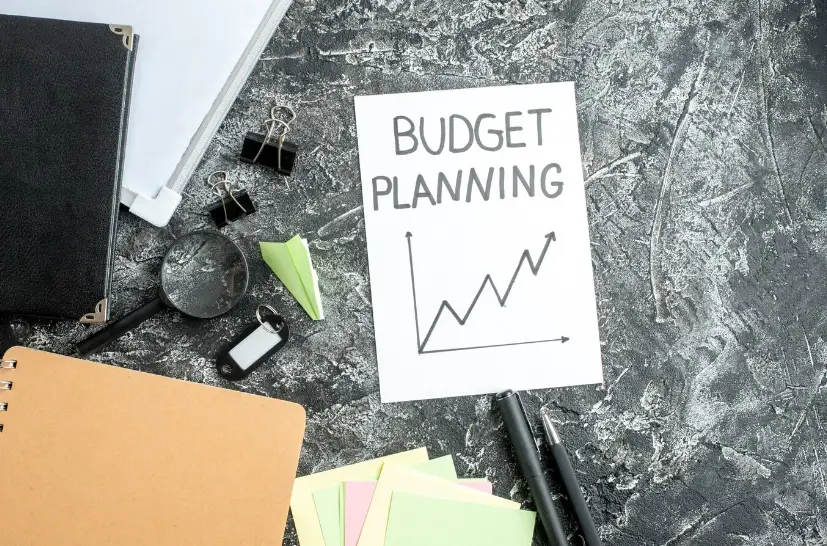How to Manage Your Budget When You’re on the Road

Few would pass up the opportunity to see and experience different parts of the world. Travel is a great way to learn and grow as a person, all the while creating memories that will last you a lifetime.
However, we’re all aware that travelling – especially for extended periods – isn’t necessarily easy or affordable. Managing your budget carefully while you’re on the road is essential if you want to maximize your travel time and have the best possible experience without breaking the bank.
Here are just a few tactics you can use during your travels to keep your bank balance in check.
Make Sure Your Budget is Realistic
Creating a budget is the obvious first step here, but the key factor is making sure it’s realistic. Throwing a random number into a spreadsheet might feel like you’re being productive, but you’ll notice this backfires pretty quickly.
Consider all your expenses – transport, accommodation, food, activities and entertainment, souvenirs, and other costs. Think about your safety and comfort as well; compare travel insurance options and look into the safest way to move around town, as these are things you might be willing to pay extra for. Research what meals and activities cost, and use what you know to create a budget that aligns with your destination and plans, then really try to stick to it.
Do Some Prioritizing
When you’re travelling, some things will obviously be more expensive than others. At the same time, certain expenses are more important than others, too! Just as when you’re at home and planning your day-to-day budget, you need to make sure you’re spending in accordance with what matters most to you.
Of course, the basics of accommodation and food are going to be the most important. However, it’s up to you to decide what else matters to you on your travels. Do you want to prioritise relaxation with a spa day, or are you interested in learning more about a place by visiting museums and memorial sites? Perhaps your eating budget is your most important expense because you want to experience the local cuisine! Know what you want out of your travels, and try to spend accordingly.
Optimize Your Transportation
One of the biggest expenses associated with travel is transportation costs. While you’re not at home with your own car, bicycle, or usual public transport, you’ll be relying on other means to get around. You’ll also typically be exploring and moving from place to place a lot more often!
This is why comparing your options is so important. Decide between renting a car, walking where possible, hiring bikes, or using public transport like buses and trains. Look into which option will be the most affordable and practical for your needs and plans, and try to save and use more affordable options where you can.
Embrace More Budget-Friendly Accommodation
If you’re not set on having a luxury holiday in a fancy hotel, you can really save a lot of money by choosing more budget-friendly accommodation options and saving your cash for other things.
Look into options on Airbnb, guesthouses, hostels, or even short-term rentals (if you’ve booked a longer stay in a city). These options are typically a lot cheaper than hotels, and you’ll often be able to find self-catering options, which will also lower your eating expenses since you won’t always have to rely on restaurants. When opting for more affordable accommodation, be sure to carefully read reviews and make sure the place is still meeting your expectations.
Eat Smart and Local
For many of us, exploring new countries and cities is all about getting to sample the local cuisine. Unfortunately, dining at touristy restaurants can be costly. If food is one of the main things on your travel agenda, consider skipping the fancy establishments and opt for more affordable options.
Street food and local delis and markets are some excellent and affordable options to get to experience the local cuisine without spending too much. Ask locals about their favourite places to get authentic dishes, and consider other ways to get your hands on the meals you’ve been dreaming about. Of course, slipping one or two high-end restaurant visits into your budget is definitely still acceptable, especially for a foodie!
Plan Some Low-Cost or Free Activities
Even for busy-bee travellers, there are loads of options for activities and entertainment that aren’t going to drain your credit card. When planning your itinerary, make sure to look out for free or low-cost adventures you can add to each day.
Consider museums with free admission days, parks where you can hike or enjoy a picnic, and festivals or markets that don’t have an entrance fee. These are just a few ideas for activities that will allow you to experience a little more of the area you’re exploring without needing to spend a load of money. Remember to take advantage of the nature that surrounds you, which is almost always free to enjoy!
